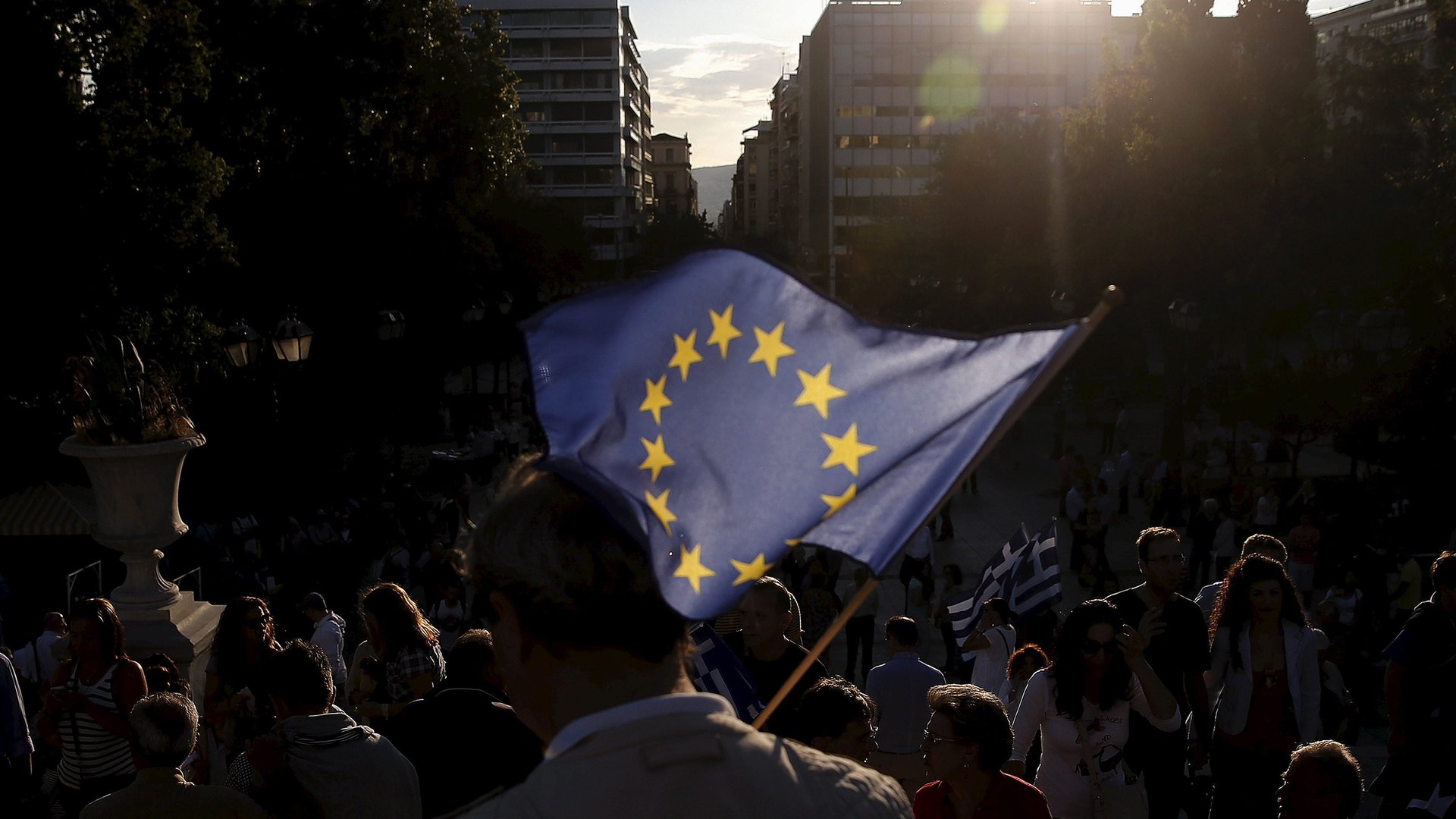The EU was an inspiration to the rest of the world, and now it’s not
Like the rest of the world, Latin America is feeling the effects of Brexit in the form of plunging currencies and stocks. The uncertainty unleashed by the UK’s vote June 23 to leave the EU will continue to shake the region’s wobbly economies in coming months, experts predict.


Like the rest of the world, Latin America is feeling the effects of Brexit in the form of plunging currencies and stocks. The uncertainty unleashed by the UK’s vote June 23 to leave the EU will continue to shake the region’s wobbly economies in coming months, experts predict.
The biggest loss, though, may be the comfort that we once had that at least somewhere in the world a group of nations was able to put aside their differences to work together. To this Mexican, that is a lot more depressing than the Mexican peso’s record low.
Latin American countries have much more in common than the nations of the European Union—language, history, culture, similar levels of development—yet the region has never been even close to achieving the degree of unity and solidarity of Europe, as Cuban blogger Yoani Sánchez points out.
“The dozens of entities and coalitions, whose initials, logos and premises surround us everywhere in Latin America, pompously hold inaugural summits with family photos filled with heads of state, but in practice and in real life they are of very little use,” she wrote in an editorial before the Brexit vote.
Amid those lackluster attempts at building cooperation, the EU offered a model that Latin Americans could aspire to. Growing up along the world’s longest border between a rich and a poor country, the one shared by Mexico and the US, I wishfully looked at how the EU deliberately pulled its poorer members up to more equal standing. The EU, it seemed, highlighted all the things that were wrong with my country’s relationship with the US.
Yes, we had NAFTA, a trade agreement that integrated companies and markets in Canada, the US and Mexico. But NAFTA didn’t deal with the social complications generated by the humongous economic gap between Mexico and its more affluent partners to the north.
European countries, in contrast, understood that opening markets was not enough. Instead of militarizing their borders, they opened them, so workers could freely follow jobs. They created policies to fight common problems, like drug trafficking. They pooled money to help the neediest in the region get ahead. Those kinds of measures were sorely absent in my part of the world.
Covering the euro zone’s economy from Frankfurt from 2003 to 2005 gave me a less rosy view of the EU. It was messy. It was very expensive. It required giving up an uncomfortable amount of sovereignty. But it still seemed like the right thing to do, not just in principle, but because together EU members were better off than on their own.
I still think that. Where is the world going to turn for inspiration on international cooperation now?